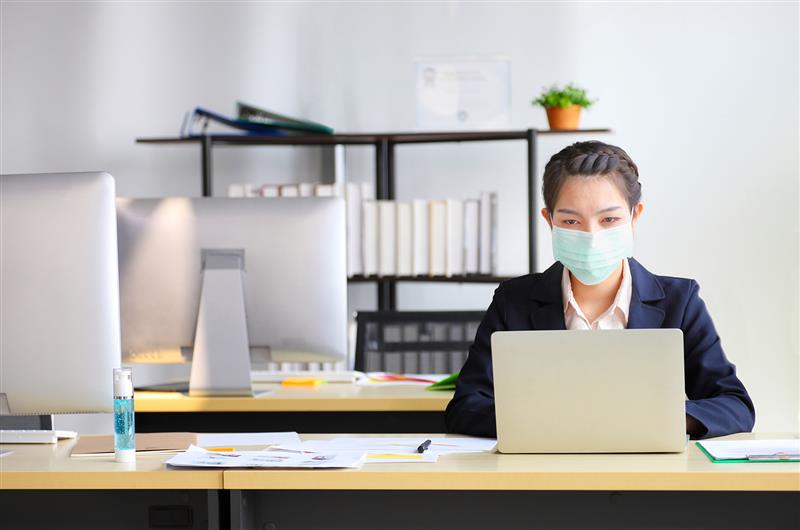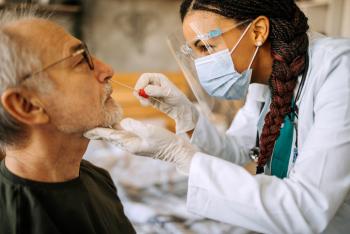Long COVID refers to a range of persistent symptoms that can linger for weeks, months or years after...
Read More

As offices throughout New Jersey begin to open their doors again, the top concern for both employers and employees is staying healthy. An estimated 40% of professional workers can work from home long-term. But for the rest of the workforce, a return to the office may be hard to avoid for much longer.
“Many employers in fields that require close interaction between employees and customers have already asked employees to return in some capacity,” said Evelyn Balogun, M.D., medical director of Urgent Care, Employee Health, and Occupational Health Services at Inspira Health. “We can take advantage of learning from them what has worked and what hasn’t in terms of safety measures.”
As more workers return to the physical work spaces, it is important to utilize a combination of engineering and infection control methods. Safe work practices may include use of personal protective equipment (PPE) especially if work entails contact with the public. Workers should maintain other practices such as social distancing and handwashing hygiene. Employees should also make sure to not report to work while feeling sick.
In industries like construction and education—ones that require physical collaboration between more than one party—social distancing guidelines may be hard to adhere to. In these scenarios, providers recommend that managers aim to develop what is referred to as a “path-breaking” strategy.
“In its simplest form, a path-breaking strategy does exactly what it sounds like,” said Dr. Balogun. “By limiting the system of shared paths—the use of things like common surfaces and shared spaces—there is a great chance to cut down the opportunities for transmitting the coronavirus.”
The use of masks, hand-washing and social distancing should continue while a path-breaking strategy is implemented. Limiting the spread of the coronavirus within office settings will ultimately depend on being able to identify and then disrupt the way people interact in close quarters.
For example, if two separate offices have an equal number of places where the virus can spread—by way of shared surfaces, common areas and bathrooms—then they’re at the same level of risk for spreading the virus. The workplace that disrupts more pathways by cutting down the exposure to these shared areas and surfaces will be mitigating the spread of the virus better.
“These paths can also be disrupted by identifying employees that act as links between groups that would otherwise be disconnected from each other,” said Dr. Balogun. “If the accounting department is on one floor and the marketing department is on another, these two groups shouldn’t have any face-to-face interaction with one another.”
Each and every intervention that is used helps to cut down on transmission, but effective re-opening strategies will also use a path-breaking strategy to disrupt viral pathways wherever possible.
Inspira Occupational Health offers acute illness and injury management with complete follow-up care, a range of employee-based services and health education, including our “Be Well” services.
For more information about how you can provide a safe working environment for your employees, call 856.641.6377.

Long COVID refers to a range of persistent symptoms that can linger for weeks, months or years after...
Read More
A Very COVID Christmas: How to Celebrate Safely
Read More
After more than two years of masks, social distancing and travel restrictions, this winter is likely...
Read More
The material set forth in this site in no way seeks to diagnose or treat illness or to serve as a substitute for professional medical care. Please speak with your health care provider if you have a health concern or if you are considering adopting any exercise program or dietary guidelines. For permission to reprint any portion of this website or to be removed from a notification list, please contact us at (856) 537-6772